Freedom is more than the absence of oppression

As we observe World Freedom Day, I cannot help but reflect on the significance of freedom—both as an abstract ideal and a lived reality. This day marks the anniversary of the fall of the Berlin Wall in 1989, an event that symbolises the triumph of liberty over tyranny and the relentless pursuit of human rights across the globe. For the youth of Bangladesh, this day resonates deeply, particularly considering our recent experiences, which exposed the fragility of our freedoms and the need for a society built on true democratic values. The fall of the Berlin Wall was not merely a physical dismantling of a barrier; it represented a moment of awakening for millions who had been silenced for decades. Similarly, our revolution arose from a deep-seated yearning for freedom—a collective cry against a regime that had systematically suppressed dissent, manipulated elections, and marginalised the voices of its citizens.
For too long, we have been trapped in a political landscape dominated by fear and repression. We were subject to a pervasive culture of self-censorship, where speaking our minds carried substantial risk. In this climate, the notions of freedom of speech, political choice, and intellectual independence became aspirations rather than rights, underscoring a disheartening disconnect between the principles we were taught and the realities we faced. The July Revolution changed everything. What began as a student-led movement advocating for quota reforms quickly morphed into a full-blown uprising against a regime that had grown increasingly authoritarian. This uprising was fueled not merely by immediate demands but by a profound desire for an environment where we could exist freely, think critically, and pursue our individual paths without fear of reprisal. It marked a crucial moment of awakening—a collective recognition that we could no longer be passive observers in our own lives.
We sought more than mere recognition; we demanded the right to articulate our beliefs openly, without the looming threat of violence or censorship. The protests became a crucible for forging a new sense of agency and purpose among us, one that is critical for any functional democracy. Equally important was our insistence on the freedom to choose our political affiliations. The political landscape was dominated by a single narrative, the regime cultivated an atmosphere where supporting opposition parties was equated with betrayal, fostering a climate of fear that stifled political plurality. The revolution also brought to the forefront the necessity of intellectual freedom. It revealed the importance of intellectual freedom, reinforcing the idea that a society thrives when diverse viewpoints can coexist.
While we celebrate this newfound freedom, we also face the sobering reality that this fight is far from over. The road to true freedom is fraught with obstacles, and complacency is our greatest enemy. The July Revolution marked a significant turning point, but it is imperative that we remain vigilant. This is not merely a matter of preserving our rights—it is about creating a political and social environment where these rights can flourish for all citizens.
The challenge ahead lies in ensuring that our newly reclaimed freedoms are embedded in our governance. We must advocate for a political system that prioritises transparency, accountability, and inclusivity. The culture of fear that had dominated our political landscape must be dismantled, replaced by one where dissent is not just tolerated but celebrated as a hallmark of democracy. Unfortunately, dissent in Bangladesh has often been met with hostility, with individuals labelled as traitors or enemies of the state for expressing opposing views. This culture of labelling must end as democracy requires an exchange of ideas and welcomes criticism for healthy political discourse.
Our recent history has shown that freedom is not simply about the absence of oppression; it is about actively constructing a society where we can speak, choose, and think without fear. In Bangladesh, the struggles of women and minorities often extend beyond the political sphere and encompass issues of safety, agency, and representation. Many of them still face harassment and violence when they assert their rights or engage in public life. Our revolution must, therefore, focus on the empowerment of these communities—ensuring they can express their opinions freely and occupy spaces where they can influence change. The fight for freedom is incomplete if it does not include the struggles of the historically marginalised.
Our freedom now comes with the opportunity to renew our commitment to the ideals that resonate so deeply within us. Together, we can build a future where freedom flourishes—where every voice is heard, and where we can all thrive as individuals and as a collective. Our fight was never for a fleeting moment of freedom but for a system that honours the sacrifices of those who came before us. And our future depends on our ability to safeguard the freedoms we have fought so hard to reclaim. It is our responsibility to ensure that the symphony of freedom plays on, harmonious and inclusive, reflecting the hopes and aspirations of every Bangladeshi. Together, we must continue this unfinished struggle, united in our pursuit of a brighter, freer future for all.
Maisha Islam Monamee is a student of Institute of Business Administration (IBA) at the University of Dhaka and a contributor at The Daily Star. She can be reached at @monameereads on Instagram.
Views expressed in this article are the author's own.
Follow The Daily Star Opinion on Facebook for the latest opinions, commentaries and analyses by experts and professionals. To contribute your article or letter to The Daily Star Opinion, see our guidelines for submission.

 For all latest news, follow The Daily Star's Google News channel.
For all latest news, follow The Daily Star's Google News channel. 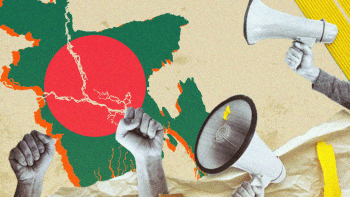
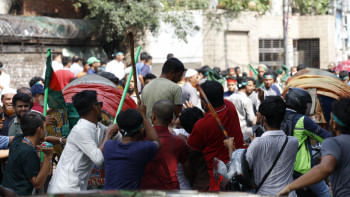


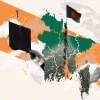
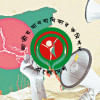

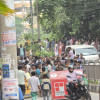
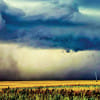


Comments